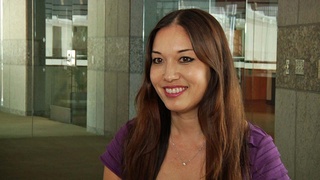Interviews
Being on the outside
It was interesting to be in a place where all these Japanese were because all these Japanese names on the stores, sometimes written in English and then…yeah it was very interesting. And then…well, let’s say everybody was about the same height as I was in those days. Now that’s changed. I suppose I didn’t feel out of place. At the same time, I’m not really Japanese. So I’m not going to try to fit into Japanese society as a Japanese. My background is different, my language is different, my culture, my sense of values…so some things are difficult to change. Although I found that this is an interesting country. But there’s a great difference between…I could never really be on the inside track in this kind of society. So I’m always on the outside. Just like I was at the Buddhist Journal. I was never really accepted in as a member. So I was always on the outside. I kind of like it. I’m much freer because I have no real obligations. I don’t have to answer for a lot of things because I am on the outside.
Date: November 13, 2003
Location: Kyoto, Japan
Interviewer: Art Nomura
Contributed by: Art Nomura, Finding Home.
Explore More Videos









Postwar school-life
(b. 1930) Half Japanese and grew up in both Japan and the United States.

On Challenging Institutions
(1938-2020) Japanese American attorney and civil rights activist

Pop and Balls
(1938-2020) Japanese American attorney and civil rights activist

Re-examining Identity
(1941-2018) Japanese Canadian photojournalist and activist

Culture is an important part of one's identity
Jewish Japanese American journalist


